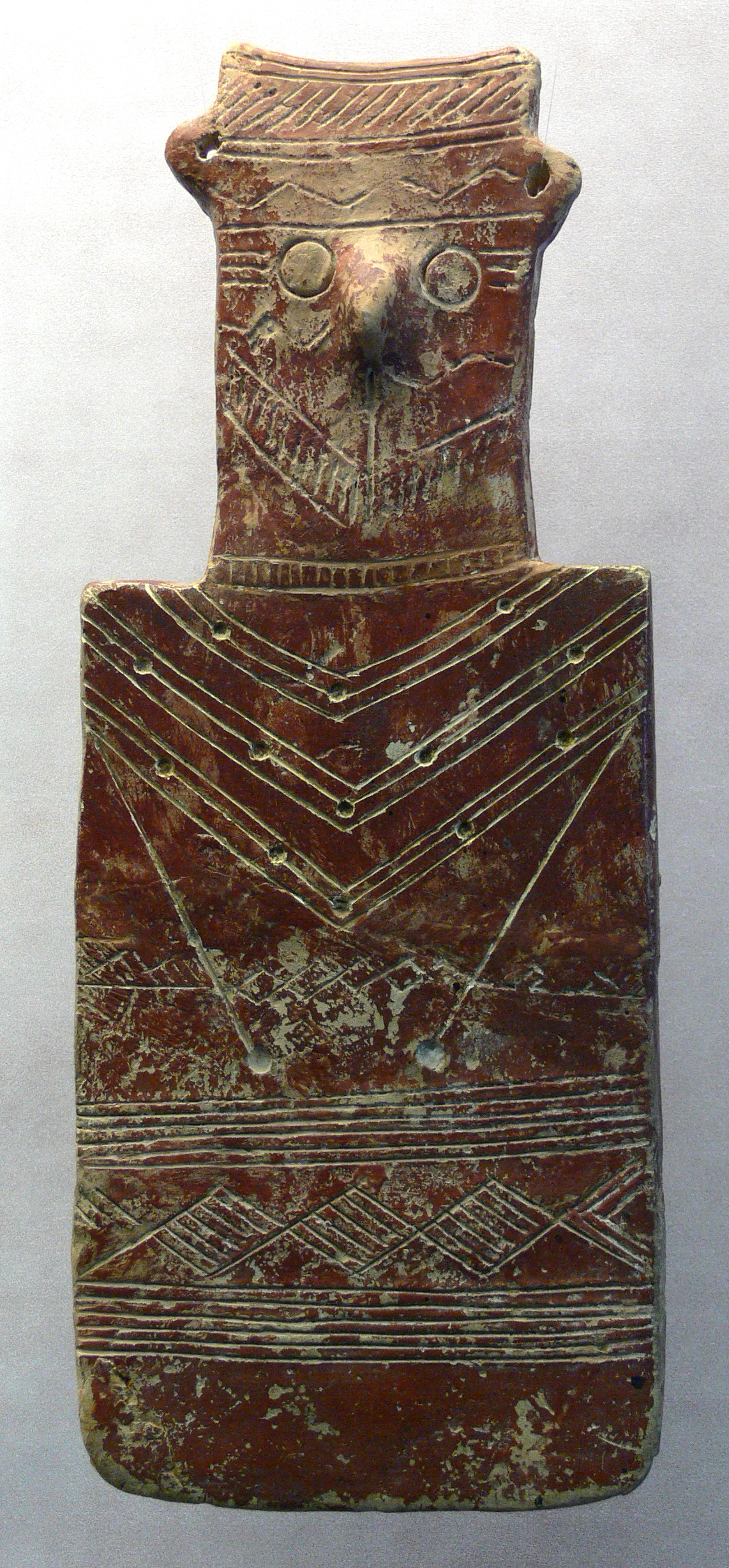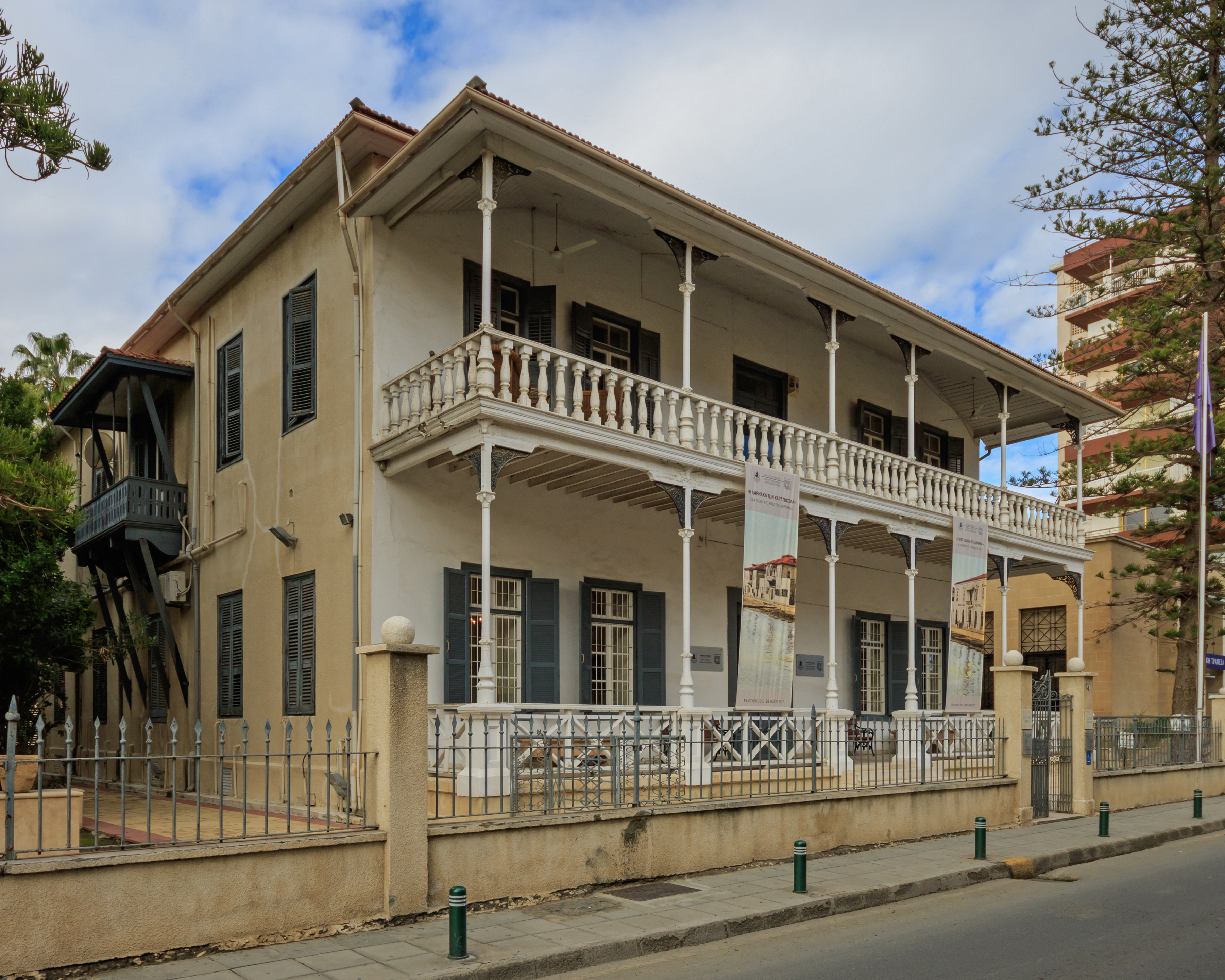|
Demetrios Pieridis
Demetrios Pierides ( el, Δημήτρης Πιερίδης; 1811–1895) was a Greek Cypriot banker, vice consul of Great Britain and collector of ancient Cypriot artefacts. He was the son of Pierakis Demetriou Corella (1790–1821) and Maria Caridi (c. 1775 – 1870) Career He studied history and literature in England and was a private tutor of Greek of the Duke of Sutherland. At a later stage he was a professor of English language in Greece. Pierides was the Director of Ottoman Bank in Larnaca. In 1849 he took part in an expedition, led by Royal Navy Captain T.Graves, to compile the first proper map of Cyprus. He was a Member of Parliament (1884-1885) in Cyprus, and vice consul of England (1849-1850). Antiquities His interest in ancient history of Cyprus and will to prevent art dealers from selling the rich cultural heritage to foreign collectors of antiques, made Demetrios Pierides a collector of ancient artefacts. By that he managed to keep an important part of Cyprus handicra ... [...More Info...] [...Related Items...] OR: [Wikipedia] [Google] [Baidu] |
Greek Cypriots
Greek Cypriots or Cypriot Greeks ( el, Ελληνοκύπριοι, Ellinokýprioi, tr, Kıbrıs Rumları) are the ethnic Greek population of Cyprus, forming the island's largest ethnolinguistic community. According to the 2011 census, 659,115 respondents recorded their ethnicity as Greek, forming almost 99% of the 667,398 Cypriot citizens and over 78% of the 840,407 total residents of the area controlled by the Republic of Cyprus. These figures do not include the 29,321 citizens of Greece residing in Cyprus, ethnic Greeks recorded as citizens of other countries, or the population of the Turkish-occupied Northern Cyprus. The majority of Greek Cypriots are members of the Church of Cyprus, an autocephalous Greek Orthodox Church within the wider communion of Orthodox Christianity. In regard to the 1960 Constitution of Cyprus, the term also includes Maronites, Armenians, and Catholics of the Latin Church ("Latins"), who were given the option of being included in either the Greek or ... [...More Info...] [...Related Items...] OR: [Wikipedia] [Google] [Baidu] |
Caridi
The Cariddi (or Caridi) family surname is believed to have its roots deep into antiquity. Julius Caesar refers to the Caridi family in his 'Commentaries' () (1). However the name, which in Greek is Karideus/Karidis, existed in ancient times because its root can be traced back to the Myceneans (at least 1000 BC) like so: Ka-Ri-Se-U (Keriseus-Karideus) (2) More recent evidence regarding the Caridi family is provided by the Renaissance genealogist Mugnos (1). He remarks that there were 'some' men (i.e. not just one) mentioned by Julius Caesar, who had this surname, i.e. they already were an established family with ancestors and descendants. According to Mugnos, they were 'noteworthy' (in Italian 'chiari'), and this suggests that they were high officials and of considerable standing in order to be important enough to be mentioned by Julius Caesar. The family as a whole was most likely a member of the Ancient Roman nobility, who had their sons sent to the army to become military lead ... [...More Info...] [...Related Items...] OR: [Wikipedia] [Google] [Baidu] |
Larnaca
Larnaca ( el, Λάρνακα ; tr, Larnaka) is a city on the south east coast of Cyprus and the capital of the Larnaca District, district of the same name. It is the third-largest city in the country, after Nicosia and Limassol, with a metro population of 144,200 in 2015. Larnaca is known for its palm-tree seafront also called Finikoudes (Greek: Φινικούδες) as well as the Church of Saint Lazarus, Larnaca, Church of Saint Lazarus, Hala Sultan Tekke, Kamares Aqueduct, and Larnaca Castle. It is built on the ruins of ancient Kition, Citium, which was the birthplace of stoicism, Stoic philosopher Zeno of Citium, Zeno. Larnaca is home to the country's primary airport, Larnaca International Airport. It also has a seaport and a marina. Names The name ''Larnaca'' originates from the Ancient Greek noun 'coffer, box; chest, e.g. for household stores; cinerary urn, sarcophagus, coffin; drinking trough, chalice'. An informal etymology attributes the origin of the name to the m ... [...More Info...] [...Related Items...] OR: [Wikipedia] [Google] [Baidu] |
History Of Cyprus
Human habitation of Cyprus dates back to the Paleolithic era. Cyprus's geographic position has caused Cyprus to be influenced by differing Eastern Mediterranean civilisations over the millennia. Periods of Cyprus's history from 1050 BC have been named according to styles of pottery found as follows: * Cypro-Geometric I: 1050-950 BC * Cypro-Geometric II: 950-850 BC * Cypro-Geometric III: 850-700 BC * Cypro-Archaic I: 700-600 BC * Cypro-Archaic II: 600-475 BC * Cypro-Classical I: 475-400 BC * Cypro-Classical II: 400-323 BC Prehistoric Cyprus Cyprus was settled by humans in the Paleolithic period (known as the Stone Age) who coexisted with various dwarf animal species, such as dwarf elephants (''Elephas cypriotes'') and pygmy hippos (''Hippopotamus minor'') well into the Holocene. There are claims of an association of this fauna with artifacts of Epipalaeolithic foragers at Aetokremnos near Limassol on the southern coast of Cyprus. The first undisputed settlement occurred ... [...More Info...] [...Related Items...] OR: [Wikipedia] [Google] [Baidu] |
Pierides Museum
The Pierides Museum is a museum in Larnaca, Cyprus that was founded by the Pierides Foundation. It is the nation's oldest private museum. The placard on the museum building says (as of 2013) "Perides Museum - Bank of Cyprus Cultural Foundation". The collection was initiated by Demetrios Pierides, in the 19th century (1811 - 1895), with the aim of protecting and preserving Cyprus' antiquities and preventing the loss of the island's history. The collections were built by five generations of the family. The archaeological collection is housed in the old residence of the Pierides family, a colonial style building, built in 1825. The exhibits beginning from the Neolithic times through the Bronze Age, Geometric, Archaic, Hellenistic, Roman and Byzantine - Medieval ages. There is also a cartography collection of old maps and charts of Cyprus and the Eastern Mediterranean as well as a collection of Greek and Roman glassware. Currently the museum is managed by Peter Ashdjian, an 8th ge ... [...More Info...] [...Related Items...] OR: [Wikipedia] [Google] [Baidu] |
Cyprus Museum
The Cyprus Museum (also known as the Cyprus Archaeological Museum) is the oldest and largest archaeological museum in Cyprus. The museum houses artifacts discovered during numerous excavations on the island. The museum is home to the most extensive collection of Cypriot antiquities in the world and is located on Museum Street in central Nicosia. Its history goes hand in hand with the course of modern archaeology (and the Department of Antiquities) in Cyprus. Of note is that only artefacts discovered on the island are displayed. History As an institution, the Cyprus Museum was founded in 1882 during the British occupation of the island following a petition by the Cypriot people. This makes the museum 139 years old. The petition was delivered to the British administration by a delegation headed by the religious leaders of both the Christian and Muslim populations. A major catapult for this action were several illicit excavations and the smuggling of antiquities off the island. T ... [...More Info...] [...Related Items...] OR: [Wikipedia] [Google] [Baidu] |
Zenon D
Zenon may refer to * Zenon, an Ancient Greek name, derived from the theonym Zeus Industry * ZENON Environmental, a Canadian water treatment company based in Oakville, Ontario * Zenon Petroleum and Gas, importer of fuel products Fiction * '' Zenon: Girl of the 21st Century (film) '' * '' Zenon: The Zequel '', a 2001 Disney Channel Original Movie directed by Manny Coto * '' Zenon: Z3'' television film trilogy, following Zenon: Girl of the 21st Century (1999) and Zenon: The Zequel (2001) * ''Monthly Comic Zenon'', a Japanese manga anthology * '' Zenon: Girl of the 21st Century'', a 1997 children's science fiction picture book written by Marilyn Sadler and illustrated by Roger Bollen Fictional characters * Great Demon King Zenon, leader of the demons in the manga and anime ''Devilman'' * Overlord Zenon, antagonist from the video game '' Disgaea 2: Cursed Memories'' * Zenon Kar, character in the film '' Zenon: Girl of the 21st Century'' * Zénon Ligre, alchemist, the protago ... [...More Info...] [...Related Items...] OR: [Wikipedia] [Google] [Baidu] |
1811 Births
Events January–March * January 8 – An unsuccessful slave revolt is led by Charles Deslondes, in St. Charles and St. James Parishes, Louisiana. * January 17 – Mexican War of Independence – Battle of Calderón Bridge: A heavily outnumbered Spanish force of 6,000 troops defeats nearly 100,000 Mexican revolutionaries. * January 22 – The Casas Revolt begins in San Antonio, Spanish Texas. * February 5 – British Regency: George, Prince of Wales becomes prince regent, because of the perceived insanity of his father, King George III of the United Kingdom. * February 19 – Peninsular War – Battle of the Gebora: An outnumbered French force under Édouard Mortier routs and nearly destroys the Spanish, near Badajoz, Spain. * March 1 – Citadel Massacre in Cairo: Egyptian ruler Muhammad Ali kills the last Mamluk leaders. * March 5 – Peninsular War – Battle of Barrosa: A French attack fails, on a larger Anglo-Portuguese-Sp ... [...More Info...] [...Related Items...] OR: [Wikipedia] [Google] [Baidu] |
1895 Deaths
Events January–March * January 5 – Dreyfus affair: French officer Alfred Dreyfus is stripped of his army rank, and sentenced to life imprisonment on Devil's Island. * January 12 – The National Trust for Places of Historic Interest or Natural Beauty is founded in England by Octavia Hill, Robert Hunter and Canon Hardwicke Rawnsley. * January 13 – First Italo-Ethiopian War: Battle of Coatit – Italian forces defeat the Ethiopians. * January 17 – Félix Faure is elected President of the French Republic, after the resignation of Jean Casimir-Perier. * February 9 – Mintonette, later known as volleyball, is created by William G. Morgan at Holyoke, Massachusetts. * February 11 – The lowest ever UK temperature of is recorded at Braemar, in Aberdeenshire. This record is equalled in 1982, and again in 1995. * February 14 – Oscar Wilde's last play, the comedy ''The Importance of Being Earnest'', is first shown at St James's The ... [...More Info...] [...Related Items...] OR: [Wikipedia] [Google] [Baidu] |
Greek Educators
Greek may refer to: Greece Anything of, from, or related to Greece, a country in Southern Europe: *Greeks, an ethnic group. *Greek language, a branch of the Indo-European language family. **Proto-Greek language, the assumed last common ancestor of all known varieties of Greek. **Mycenaean Greek, most ancient attested form of the language (16th to 11th centuries BC). **Ancient Greek, forms of the language used c. 1000–330 BC. **Koine Greek, common form of Greek spoken and written during Classical antiquity. **Medieval Greek or Byzantine Language, language used between the Middle Ages and the Ottoman conquest of Constantinople. **Modern Greek, varieties spoken in the modern era (from 1453 AD). *Greek alphabet, script used to write the Greek language. *Greek Orthodox Church, several Churches of the Eastern Orthodox Church. *Ancient Greece, the ancient civilization before the end of Antiquity. * Old Greek, the language as spoken from Late Antiquity to around 1500 AD. Other uses * ' ... [...More Info...] [...Related Items...] OR: [Wikipedia] [Google] [Baidu] |






